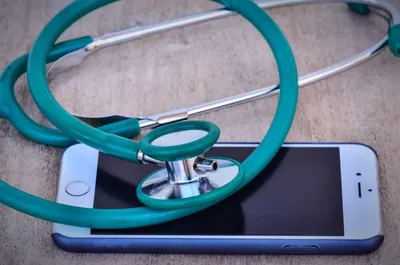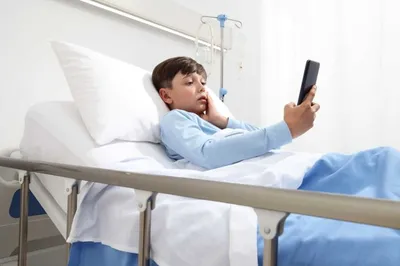Solving The Problem Of Poor Hospital Mobile Connection
A digital transformation era within the NHS means better connectivity and improved efficiencies – but how can you enhance your patients’ hospital experience?
Now more than ever, smartphones and tablets are more than just a convenience.
They’re a vital tool in keeping us connected. During the last year we’ve made even further demands on the technology we use on our phones and tablets.
Last year, weekly screen time reports skyrocketed, surveys reported a 37% increase in texting and a 32% increase in video calling.
And Facebook’s reported a massive 70% increase in group calls via Messenger.
Prior to lockdown, how many of us were familiar and at ease with video calling?
Now we don’t think twice about hopping on a zoom and catching up with our nearest and dearest.
And although some of us initially may have felt out of our comfort zone, technology was a saviour when it came to keeping us connected at a time when we had to be apart.
If we’re working from home and the WIFI drops out, we know that we can take to google and fix the problem by creating a hotspot from our mobile in order to get the job done.
And in April 2020, the NHS entered a digital transformation era in order to assist them to get their job done – more effectively.
‘Mobile First’
Early last year the government rolled out the NHS Long Term Plan, providing a blueprint for a 10-year digital transformation strategy. By adopting a ‘Mobile First’ plan, patients can now access services such as, ‘Patient Online’ to order prescriptions, book appointments and view medical notes.
They’re also improving efficiencies on the front line by providing tablets and smartphones to practitioners so they can access and respond to patient information more quickly and easily. The NHS estimate they will save £230 million a year through digital efficiencies.
Better data means more effective planning and more effective means cost savings. It will also increase effective collaboration by making information readily available to researchers working on new treatments and technologies.
“Secure infrastructure, hard-working data, and effective
collaboration mean we can make a real difference to people’s lives. By
harnessing data, information, and technology, NHS Digital are helping to
create better, faster, and more effective health and social care services for
everyone”
Pagers and DECT phones are being phased out already as the healthcare service become increasingly dependent on mobile devices to deliver in-hospital and staff communications.
Mobiles are already key devices in A&E control rooms and good, reliable mobile phone coverage is critical to the infrastructure needed to support A&E response teams.

Efficiencies on the up but patient experience plateaus
Extensive Wi-Fi solutions have been rolled out in more than 95% of all practices and properties, but patients are still experiencing poor mobile reception.
In a time when we’re unable to accompany and visit our loved ones in hospital, the methods of communications that we’ve become more familiar with during the pandemic at home, are unachievable at the time we’re most reliant on them.
Poor call quality is commonplace, but video calling is practically impossible.
The reasons for this poor-quality signal are mostly down to construction materials and configuration of buildings on the site.
As hospitals have grown and sprawled like campuses, buildings and multi storeys get added as and where there’s space.
It’s not uncommon for wards to look straight out onto another building.
Radio waves can be partially or completely blocked by masonry, metal and glass. So, wherever you are in the building, you’re going to have problems connecting.

How does a Nextivity CEL-FI mobile signal booster solve the problem for hospitals?
We’ll come to your hospital to conduct a full site survey and provide you with our proposals to turn your signal problem around. We use Nextivity Cel-Fi technology to ensure a great connection between your coverage unit and a booster that we’ll place in an area where mobile signal is super strong.
The boosters enhance signals by as much as 1000 times, over limited distances to avoid interference. They qualify each channel individually too, so that results are focused, and the infrastructure behind the products is all network safe.
Cel-Fi boosters are classed as static mobile phone repeaters for indoor use and are ideal for buildings with poor signal for many reasons:
They’re 100% legal to use, fully compliant with Ofcom licensing laws
They’re unconditionally network safe
They’re accepted by UK regulators
They provide high quality signal in areas where coverage is poor or non-existent
They’re compatible with every mobile network
If you’d like to talk to someone here about finding a reliable mobile signal solution for your hospital, please give us a call on 020 3823 7365.